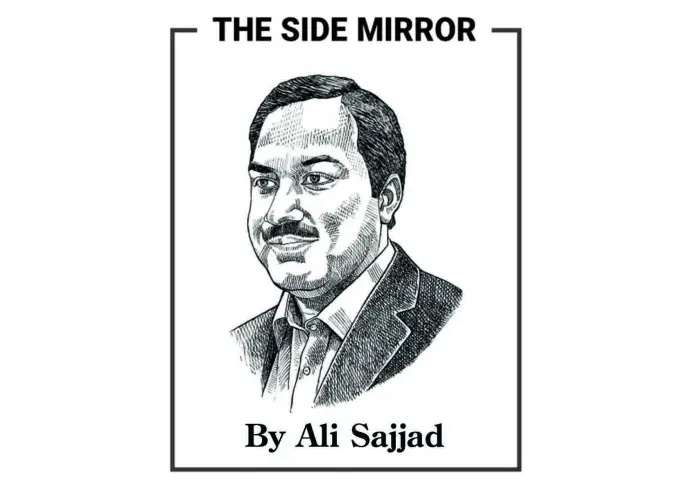I diligently follow the social media accounts of the foreign missions stationed in Pakistan as their tweets, Facebook and Instagram posts convey more than diplomacy, and mutual ties and interests.
Recently, when the England Cricket Board (ECB) announced the cancellation of their men’s and women’s cricket teams to Pakistan, citing unspecified security threats, this triggered a wave of rage, anger, and frustration among the cricket-crazy nation called Pakistan.
Everyone looked to the British government to explain their anti-sport stet. Within hours, British High Commissioner Christian Turner rose to the occasion and posted a video message on his official Twitter handle.
And he spoke to the Pakistanis, not the Pakistan Cricket Board or the Pakistani government.
On behalf of the British government, he conveyed the message that his government had no role in the fiasco.
He wore shalwar, kameez and waistcoat in the video. That is the finest art of diplomacy.
“I share the deep sadness of cricket fans that England will not tour Pakistan in October,” he started the message. He also looked visibly grim and concerns. “I’m sad. This was a decision made by the ECB, which is independent of the British government, based on concerns for player welfare. The British High Commission supported the tour, did not advise against it on security grounds and our travel advice for Pakistan has not changed,” Turner continued.
He turned out to be the ambassador of the game of cricket and Pakistan likewise.
“I have been a champion of international cricket’s return to Pakistan and will redouble my efforts in advance of England’s autumn 2022 tour,” he said.
He concluded the video message with a sentence in Urdu: Jeet akhir me cricket ke hu gi.
The video message has made Christian Turner a household name in Pakistan overnight.
Thank you, Christian Turner, for speaking about our concerns.
The fact is I started taking interest in foreign diplomats’ social life when, a few years back, German ambassador to Pakistan Martin Kobler took to his Twitter handle and became an ambassador of Pakistan more than his own country.
I hope the readers are familiar with Martin Kobler. He is not in Pakistan now, but his recent tweet caught my attention:
“Just seen an excellent interview of @ImranKhanPTI on @BBCWorld on #Afganistan. we would be well advised to listen more to his advice when it comes to our future afghanistan strategy.”
Thank you, Martin Kobler, for fighting Pakistan’s case in these testing times.
Martin Kobler remained in Pakistan for two years as an ambassador of Germany to Pakistan and left the country for his parent country in 2019. During his stay, Martin Kobler was seen collecting garbage to motivate the residents of Islamabad to value the beautiful capital city; on occasions, he would go on sightseeing and urge the world to tour Pakistan and explore the untapped beauty of the country. His pro-Pakistan works made him the most popular ambassador in Pakistan ever.
He broke the conventional diplomatic barriers by frequenting public places without security and got himself photographed there and shared these photos on social media. As a result, his popularity spread in Pakistan like wildfire, and the ranks of his followers on Twitter swelled to thousands.
We are fortunate to have several friends in the diplomatic enclave of Islamabad. They communicate and disseminate the message of love. Our diplomats working abroad should set examples too. That would be great diplomacy for Pakistan.







